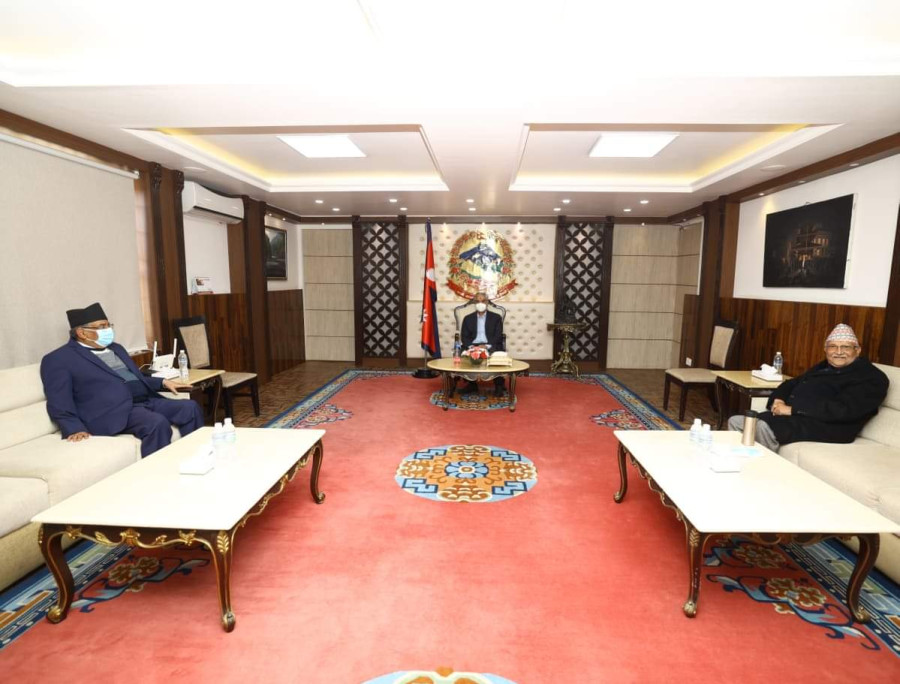Editorial
The art of dirty politics
Politicians seem to forget that citizens are not their subjects and the country is not their fiefdom.
The exchange of secret correspondence between the incumbent prime minister and the chairman of the Maoist Centre with the chairman of the Millennium Challenge Corporation shows absolute ineptness on the part of our politicians in governing forthrightly. These covert actions do not seem in any way to represent the interest of the nation and are a blot on democratic governance. The leaking of the correspondence not just exposes the politicians’ duplicity but also their fondness for carrying out such secretive dealings. On the one hand, they are always colluding among themselves to achieve their vested political interests, and on the other, their intention is to hoodwink the public to achieve those aims.
The manner in which politicians have been operating shows complete non-compliance with acceptable norms and governance standards. For instance, KP Sharma Oli, the then prime minister, promptly rolled out the red carpet for the Indian intelligence chief Samant Goel who came to Nepal to pay a “courtesy call”. And this meeting was so secretive that even after all these months, nothing has been ascertained concerning the details of the meeting. If a one-on-one meeting between the head of a foreign intelligence agency and the prime minister of another sovereign nation doesn’t ring alarm bells, then what does? Isn’t it the prerogative of the administration to come clean with the facts concerning the meeting?
What has happened is not an anomaly though; in the past too, politicians have resorted to such tête-à-tête, but the failure of Nepali politicians to maintain the minimum decorum while dealing with friendly nations not only tarnishes Nepal’s credentials but also erodes the faith of the people who voted them to power. Nefarious actions cannot be justified as acceptable governance practice; politicians need to rise above their selfish interests to meet the expectations of the people they serve in a manner that does not belittle the country’s image.
Internal politics desperately needs to be redefined as well; the actions of the current coalition government could be termed nothing less than degenerative dirty politics. Immediately after taking over as prime minister, Deuba concentrated all his efforts on repealing the Political Parties Act 2017, which was a stumbling block preventing him and his political partners from grabbing power. These were measures taken by a small group of politicians to fulfil their vested interests. It wasn’t about effectively handling the ongoing pandemic or providing some relief to those who have perished during the onslaught of the pandemic. It was squarely about politics for the sake of politics and to strengthen their cause in remaining relevant.
Their activities do not seem to point to the functioning of the democratic process. Democracy isn’t just about the electoral process which, in fact, they have been trying to subvert lately. It is about protecting the human rights of all citizens; it is about governing in a transparent environment. More importantly, it is about adhering to the rule of law. In this regard, politicians have failed miserably. But what is more astonishing is that they seem emboldened and unafraid of the repercussions of acting in a way that is always trying to undermine the rule of law. Politicians seem to forget that citizens are not their subjects and the country is not their fiefdom.




 10.12°C Kathmandu
10.12°C Kathmandu













